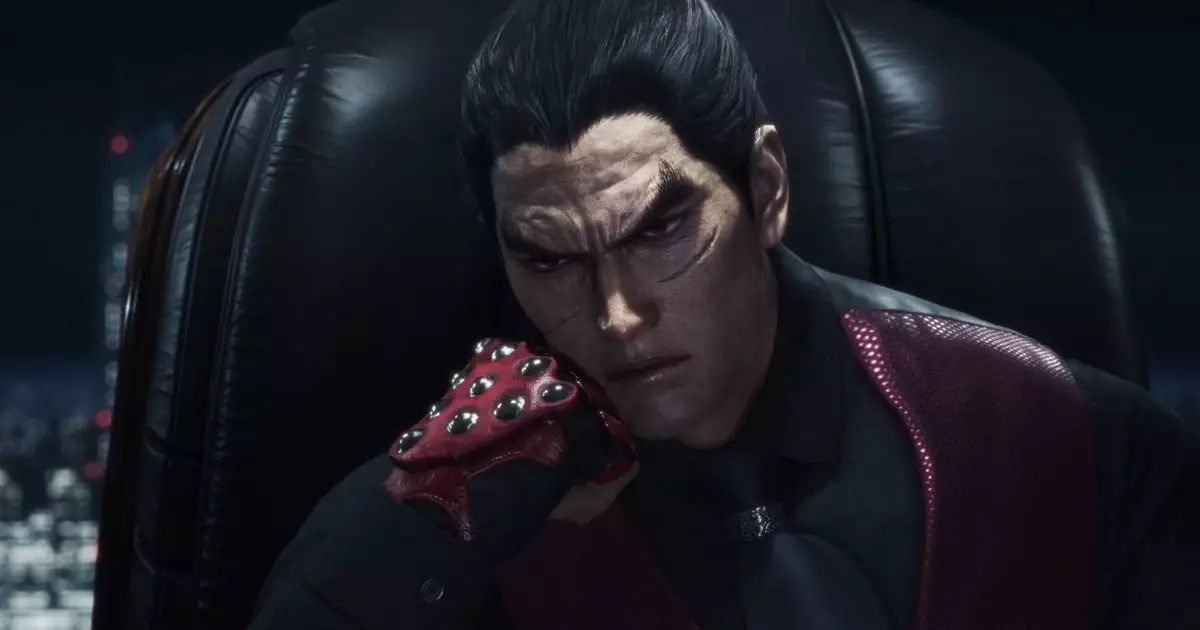Game development is often romanticized as an exhilarating journey of creativity and innovation. However, beneath this alluring facade lies the intense pressure and stress that many developers face. A recent revelation from Katsuhiro Harada, the iconic director of the Tekken series, sheds light on the personal toll that such stress can take. Harada’s experience following the release of Tekken 4 in 2001 serves as a poignant reminder of the toll that expectations and criticism can exact, not just on the outcome of a game, but on the individual behind it.
In a candid post on social media platform Xitter, Harada opened up about the anxiety that enveloped him during the release of Tekken 4. He recalled how the game’s relatively weak reception plunged him into a deep state of distress, prompting a peculiar physical response: hair loss limited to the right side of his body. While it might seem unusual for a stress-related condition to localize so specifically, such instances are not unheard of in the medical world. Stress can trigger autoimmune responses, leading to conditions like alopecia areata, which can indeed manifest asymmetrically. This surprising insight into Harada’s health illustrates a larger narrative that many in the gaming industry grapple with—how the pressures of performance can physically and mentally manifest in debilitating ways.
Redefining Success in the Face of Criticism
Harada’s account emphasizes an important aspect of game development: the dissonance between initial reception and retrospective appreciation. Despite Tekken 4 being criticized heavily at launch, it has since garnered a sense of nostalgic reverence. Harada himself notes how, at the time, he felt entirely isolated amidst a storm of negativity. It’s telling that many creators face a similar struggle: a brilliant idea may not yield the immediate success expected, but can later be viewed through a lens of appreciation as times change.
This phenomenon ties into a broader melancholic narrative within creative industries. The habitual cycle of public praise and criticism creates an unpredictable environment where the constant struggle for validation looms overhead. Harada candidly shared that he left Namco for a period due to overwhelming stress, illustrating how such emotions can lead not only to burnout but also to life-altering decisions. This highlights the precarious balance that game developers must maintain between their creative ambitions and their mental well-being.
The Personal Cost of Professional Ambition
Katsuhiro Harada’s reflections also bring to light the often unspoken weight of personal ambition within the gaming industry. As the director digs into his past experiences, he paints a picture of relentless dedication hardened by the harsh realities of public critique. The passion that propels a developer to create fantastical worlds can easily become a double-edged sword, inciting both exhilarating joy and profound anxiety.
In Harada’s case, a game he directed saw accolades only in hindsight, providing a bittersweet reminder of the chasm that can lie between initial judgment and factual legacy. The notion that “critics have forgotten their complaints” encapsulates a significant truth about the fickleness of audience reception in the creative landscape. What once felt like a catastrophic failure transformed into a tale of resilience, prompting Harada to embrace the lessons learned along the way. His story embodies the strength of adapting and thriving amid criticism, an eyebrow-raising journey that challenges narratives often circulated in gaming communities.
Looking Toward the Future: A Cautious Optimism
Now, as Harada continues his stewardship over the ever-evolving Tekken franchise—including the latest installment, Tekken 8—the lessons from the past appear to galvanize his focus. While he now enjoys a more favorable reception, it remains crucial for both developers and gaming enthusiasts alike to acknowledge the challenges that come with creation. Harada’s unique blend of steadfast passion alongside a grounded understanding of the industry’s pressures invites further discourse on how the gaming community can evolve into a space that values mental health as much as it does gaming excellence.
While nostalgia often colors our evaluation of past experiences, it’s evident that we must engage more critically with the narrative of game development. Understanding the pressures behind successful titles helps illuminate the paths of those who create them. As gaming continues to thrive and evolve, it’s imperative not just to celebrate the victories but also to support those who labor through challenges that may remain invisible to the audience. The legacy of a game often weaves together the trials fought by its creators, reaffirming that behind every celebrated title, there lies a human story often marked by struggle, resilience, and a commitment to craft excellence despite adversity.


Leave a Reply